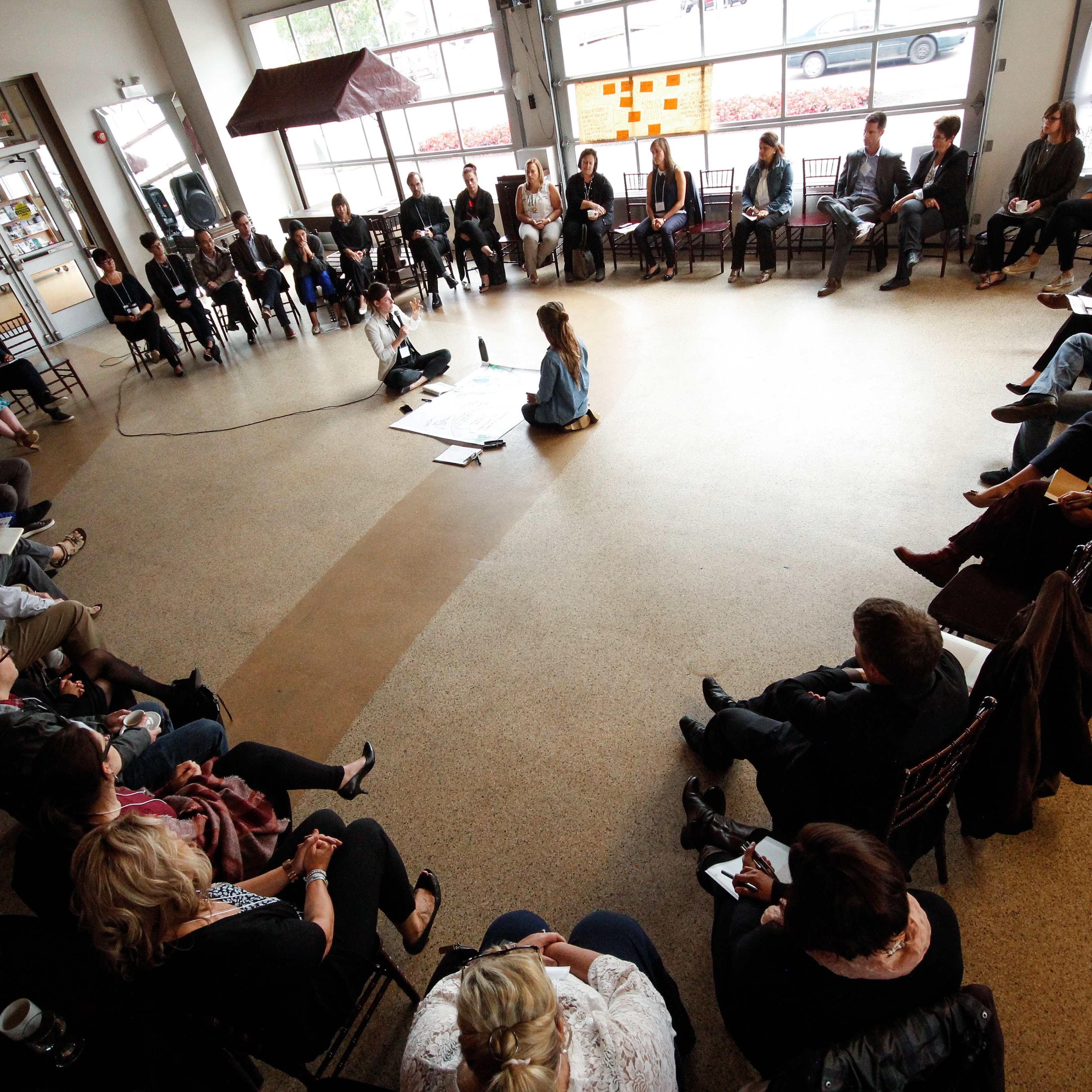The Art of Hosting Participatory Practices in Social Labs: Moving Beyond Participation to Deep Engagement
A case study of the Economic Immigration Lab in New Brunswick, Canada
DOI:
https://doi.org/10.7577/formakademisk.3383Abstract
Working with diverse groups to address complex issues is the primary aim of the burgeoning field of social labs. This paper investigates how the Art of Hosting (AoH) helped the facilitation team at New Brunswick’s Social and Public Innovation Lab (NouLAB) to build trust and integrate the wisdom of the participants into the lab process. We argue that AoH provided a container for the deep understanding and changes in perspective experienced by participants in the first two cycles of the lab. This study may be of use to those planning multi-stakeholder engagements and working in complex problem spaces.
Keywords:
Social innovation labs, Art of Hosting, participatory practices, public sector innovation, dialogic organizational development.

Downloads
Published
How to Cite
Issue
Section
License
Authors who publish with this journal agree to the following terms:
- Authors retain copyright and grant the journal right of first publication with the work simultaneously licensed under a Creative Commons Attribution 4.0 License that allows others to share the work with an acknowledgement of the work's authorship and initial publication in this journal.
- Authors are able to enter into separate, additional contractual arrangements for the non-exclusive distribution of the journal's published version of the work (e.g., post it to an institutional repository or publish it in a book), with an acknowledgement of its initial publication in this journal.
- Authors are permitted and encouraged to post their work online (e.g., in institutional repositories or on their website) prior to and during the submission process, as it can lead to productive exchanges, as well as earlier and greater citation of published work (See The Effect of Open Access).
- The author(s) must manage their economic reproduction rights to any third party.
- The journal makes no financial or other compensation for submissions, unless a separate agreement regarding this matter has been made with the author(s).
- The journal is obliged to archive the manuscript (including metadata) in its originally published digital form for at least a suitable amount of time in which the manuscript can be accessed via a long-term archive for digital material, such as in the Norwegian universities’ institutional archives within the framework of the NORA partnership.
The material will be published OpenAccess with a Creative Commons 4.0 License which allows anyone to read, share and adapt the content, even commercially under the licence terms:
This work needs to be appropriately attributed/credited, a link must be provided to the CC-BY 4.0 licence, and changes made need to be indicated in a reasonable manner, but not in any way that suggests that the licensor endorses you or your use.



